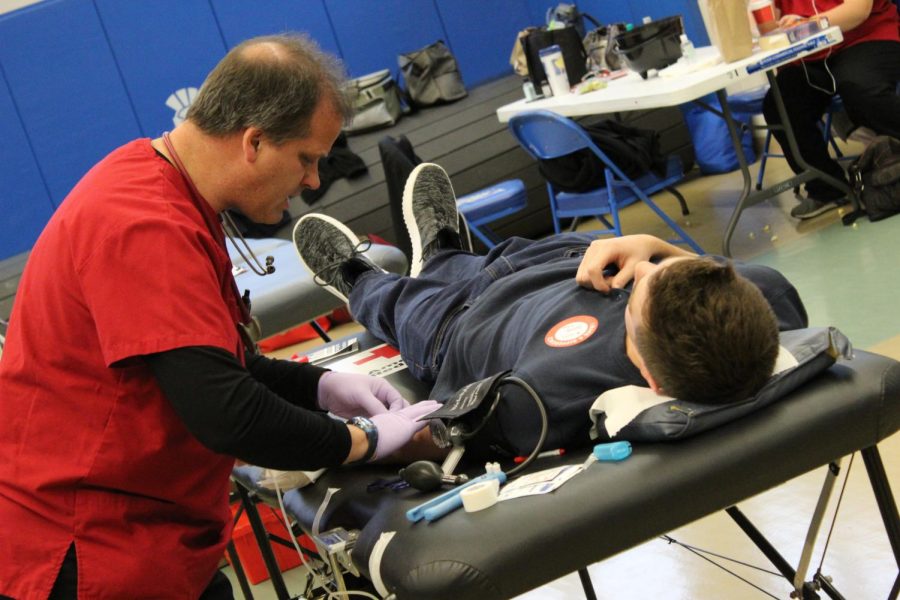Should You Vaccinate? (Opinion)
March 20, 2019
Vaccines have been helping people for over 200 years. Although there has been no validated scientific evidence of vaccines harming people, many are still hesitant to vaccinate themselves and their children for fear of it causing autism and other mental diseases. For public safety all parents should vaccinate their children.
“I think they’re important because they can help people stay safe,”said Sam Rewa ‘22.
A vaccine is a medicine that is used to prevent or lessen the chances of getting certain diseases. One of the more popular vaccinations is for a disease called Varicella also known as Chickenpox. The vaccine for Chickenpox was first licensed for use in March of 1995 in the United States. Before the vaccine was made, studies show that there were around 4 million cases of Chickenpox in the 1990s. Once the vaccine was made, nearly 3.8 million cases have been prevented with it.
Vaccines are very important for people to get because if people are unvaccinated and someone does contract a virus like measles, then it can be spread very easily. In 2019 alone there have been 209 reported cases of measles in the U.S. This is for a disease that once was nearly eradicated in first-world countries.
Many people are afraid of vaccinating their children because they believe that it will give their child autism. Throughout the all the years vaccines have been in use, there has been no evidence that vaccines have or can even cause autism. One study that “proved” vaccines did cause autism was withdrawn in October, 2018, after being flawed.
“The tradeoff to taking the risk of a dead virus to prevent an alive virus is worth it,” said science teacher Jeff Lindstrom.
Recently, there have been cases of kids who are getting vaccinations against their parents’ wishes. An example of this would be Ethan Lindenberger from Ohio whose parents did not believe in vaccines. His parents eventually accepted his beliefs that vaccines would help him.
There have been many studies on how vaccines cannot cause autism. There was a worry that the MMR vaccine also known as the Measles, Mumps, and Rubella vaccine could cause autism due to a substance known as thimerosal which contained mercury that was in it. Though it was eventually proven that thimerosal and autism had no connection with each other.
Vaccines are also covered by most health insurance plans and if you don’t have health insurance many are still available free or at a low cost. All vaccinations that are recommended for children are free until the age of 18.
Michigan does have a vaccination law that encourages parents to vaccinate their children, however there are exceptions for parents to avoid getting their children vaccinated. These exceptions include religion and deep objection to the vaccinations. The law was made to protect children in schools, where a large concentration of people could provide a situation where any disease could spread quickly.
Students attending second lunch gave their opinions on whether vaccinating children should be a legal requirement for all families. The results were heavily favored on one side with 78 students believing it should be law, while 21 students said the opposite.
For everyone’s safety, parents who don’t vaccinate their children should take into consideration other parents and their kids’ well beings.








